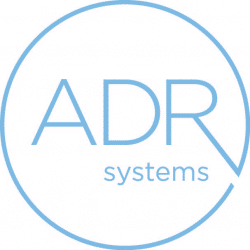Other ADR Services
While most of the cases administered by ADR Systems are resolved through mediation or arbitration, our services do not stop there. To give our clients more options to resolve their disputes, ADR Systems offers the full range of alternative dispute resolution processes, including:
- Binding Mediation
In binding mediation, the parties first attempt to mediate the case, and if there are issues that remain unresolved, the parties agree that the mediator will render a decision on those issues. The parties may choose to use high/low parameters or a floor and ceiling to protect against the mediator’s decision.
- High-Low Arbitration
Parties agree before the arbitration to a minimum and maximum dollar amount for the arbitration award, but this information is not revealed to the arbitrator. The arbitrator renders a decision at the close of the hearing. If the award is below the minimum, the award is capped at the minimum. If the award is above the maximum, the award is capped at the maximum. This helps parties mitigate risk.
- Tri-panel Arbitration
Parties agree to a panel of three arbitrators, with the third (independent) arbitrator being selected from ADR Systems. Alternatively, all three arbitrators can be chosen from ADR Systems neutrals as an “independent panel.” The rules of evidence are often governed by an insurance policy, and an award may be rejected under certain provisions.
- Binding Arbitration
Binding arbitration, sometimes referred to as simply ‘arbitration’, brings finality to a dispute because the arbitrator or arbitrators render a decision at the end of an arbitration hearing. Only in very limited circumstances is the decision of the arbitrator subject to review by the court.
- Paper Arbitration
This form of arbitration is done entirely through written documents. Parties argue their case in a brief and submit evidentiary documents. Parties may agree to certain rules for submissions prior to the start of the process. It works well if parties are unable to meet together to arbitrate, or for less complicated cases.
- Neutral Evaluation
This is a non-binding process in which a neutral is retained by the parties to provide an evaluation based solely on the merits of the case.
- Special Master
This neutral third party aids with disputes that are legally or administratively complex. A special master may help craft case settlement options or mediate specific issues in a case.
- Discovery Master
This neutral third party aids with discovery disputes and may settle outstanding issues, or mediate the issues regarding discovery. Parties with e-discovery issues have also successfully used discovery masters to resolve e-discovery issues.
- Mediation-Arbitration
This is a hybrid method of dispute resolution which combines both mediation and arbitration. The parties agree to mediate their dispute. If they are unable to settle, they then participate in binding arbitration using the same neutral.
- Mini Trial
This is a highly formalized and evaluative mediation process, in which the parties relinquish procedural power in order to reframe the dispute and look at it from a business perspective, rather than a litigation perspective. This process requires the involvement of non-legal party representatives with settlement authority, who sit as a panel with the neutral.
- Appellate Review
A neutral third party and former Appellate Justice will review a case to determine what could happen upon appeal. The information gained may help in drafting an appellate brief and preparing for oral arguments. It may also be a means to communicate with clients regarding the likelihood of success or failure on appeal.


